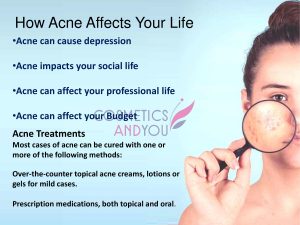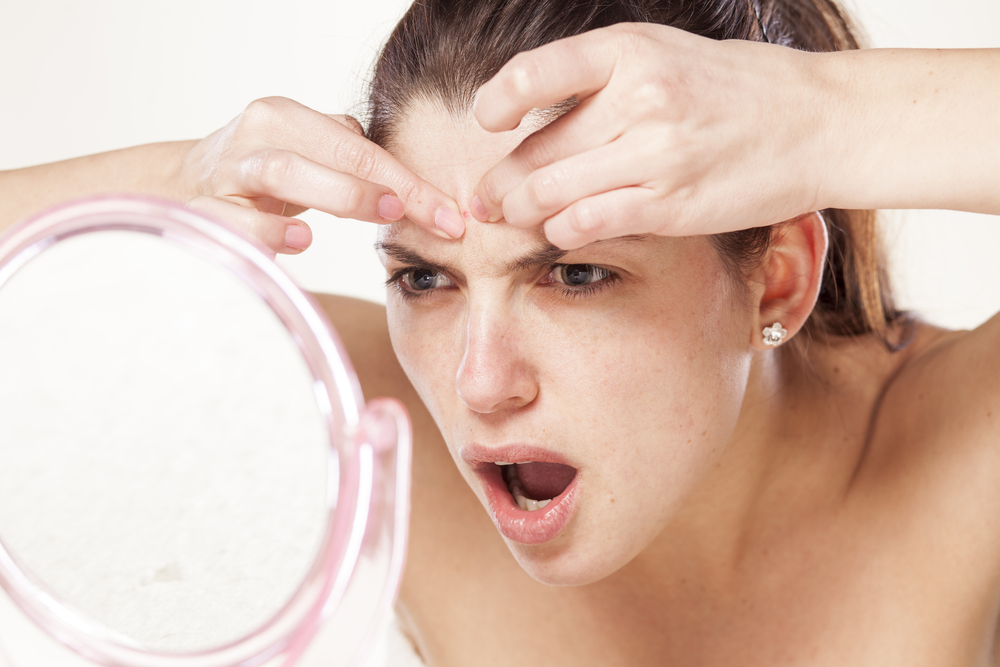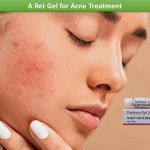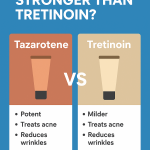Skin is the first thing others notice about you. It is also the first thing you notice about yourself when you look in the mirror every morning. It can be difficult to feel beautiful when you don’t have a healthy skin. Even if you may conceal those ugly marks with layers of foundation, you know that underneath it is not the best condition.
When you have good skin, you can face life’s challenges with more confidence. Although the healthy skin is not a guarantee that you will get successful in your job or that your love life will be great, it certainly works to give a great boost to your confidence and helps you to put your best foot forward.
Good skin is a key to overall well-being and great health. Acne is one of the major skin issues that affect not just your skin, but your entire life in several ways. Your loved ones may not fully comprehend just how acne has an impact on your self-esteem and other areas of your life, but it does affect in very real ways.
Often acne is considered as a trivial issue, especially in comparison to other diseases. However, research has shown that people suffering from acne experience the same psychological, emotional and social consequences as those with chronic health ailments including diabetes, arthritis, and epilepsy.
Acne can cause depression
Having acne marks on your skin can make you angry, depressed and overwhelmed. Even minor breakouts can make you feel anxious.
Acne can strike at any age. Both teenagers and adults suffer alike from its onslaught. If you are feeling depressed since long due to acne, talk to a professional as soon as possible.

Depression due to acne must be recognized and treated on time. Some signs of depression are:
- Mood swings
- Loss of appetite
- Lethargy
- Spontaneous crying
- Behavioral issues
- Insomnia
- Feelings of unworthiness
In teenagers, depression may show as negative school performance or social withdrawal. In severe cases, it can lead to suicides as well. Parents and teachers need to pay attention when a child starts to isolate themselves more and more.
Acne impacts your social life
In today’s age, everyone is concerned about how they look. Our society puts a great deal of importance on appearance and people with acne can feel embarrassed or uncomfortable. The presence of acne can prevent people from meeting people or engaging in things they love.
Acne can affect your professional life
Acne can also hold you back professionally. Most jobs involve face to face interaction with others on an everyday basis. People would notice if your face is loaded with acne or acne scars. When you are anxious about your skin, your self-assuredness and confidence can take a beating. You may also appear as less friendly.
Acne can affect your Budget
Acne can have an impact on your budget as well. People suffering from acne may try several products, only to find that they have worsened the situation. Unfortunately, certain treatments can be overly harsh and may not treat the issue. Instead of picking something out of the shelf, it is good if take a help and consult a skin care expert who can examine you and recommend effective treatments.
Acne Treatments
Most cases of acne can be cured with one or more of the following methods:
- Over-the-counter topical acne creams, lotions or gels for mild cases
- Prescription medications, both topical and oral
Although acne is more common in teenagers, around 25% adults to suffer from the unsightly skin conditions. Some men and women may also find that they have never suffered from acne in their teens, and then suddenly certain factors can trigger the breakouts during their grown up years such as diet, stress, and hormonal changes.
Skin Care Tips
Apart from following acne treatment methods recommended by your physician, there are several things that you can do too to reduce the infection and inflammation on your skin.
- Clean the affected parts on your face at least twice daily. This can help reduce the number of dead skin cells, excess oil and dirt build up on the skin.
- Exfoliate the skin at least three times a week. This will unclog the pores and help get rid of dead skin cells. However, make sure that you do not overdo the process as it can lead to skin irritation.
- Making changes in your diet is important to take good care of your skin. Avoid oily, sugary and fatty foods.
- Include more fruits, vegetables and dairy products in your diet to reduce inflammation.
- Learn to manage stress in your life. You can practice yoga, meditation, breathing techniques to help soothe your nerves. Often, stress reflects on your skin in a major way.
Instead of depending on cosmetics to cover up your skin issues, it can help to implement a skin care regimen that will help maintain a healthy skin.
Following Acne Treatments
While acne can seem like a big problem, there are treatments galore to treat it. Millions of people all across the world have successfully eliminated acne from their lives.
The first step in treating acne is to get help immediately. The right acne treatment can work well to gradually remove acne from your skin, even if it has been there for years.
While treating acne, make sure to address the emotional issues as well that go along with acne. Discuss with your doctor if you find that acne is affecting your self-esteem or is making you feel anxious or depressed. Your doctor can help you deal with depression issues if any.
Have a support system as you embark on the journey to eliminate acne. Your family and friends can help get rid of feelings of isolation. Make sure to take steps to nurture yourself and take care of your overall well-being as well. This can help tremendously to enhance your self-image. Keep in mind, acne can be treated easily if you follow the right direction.





